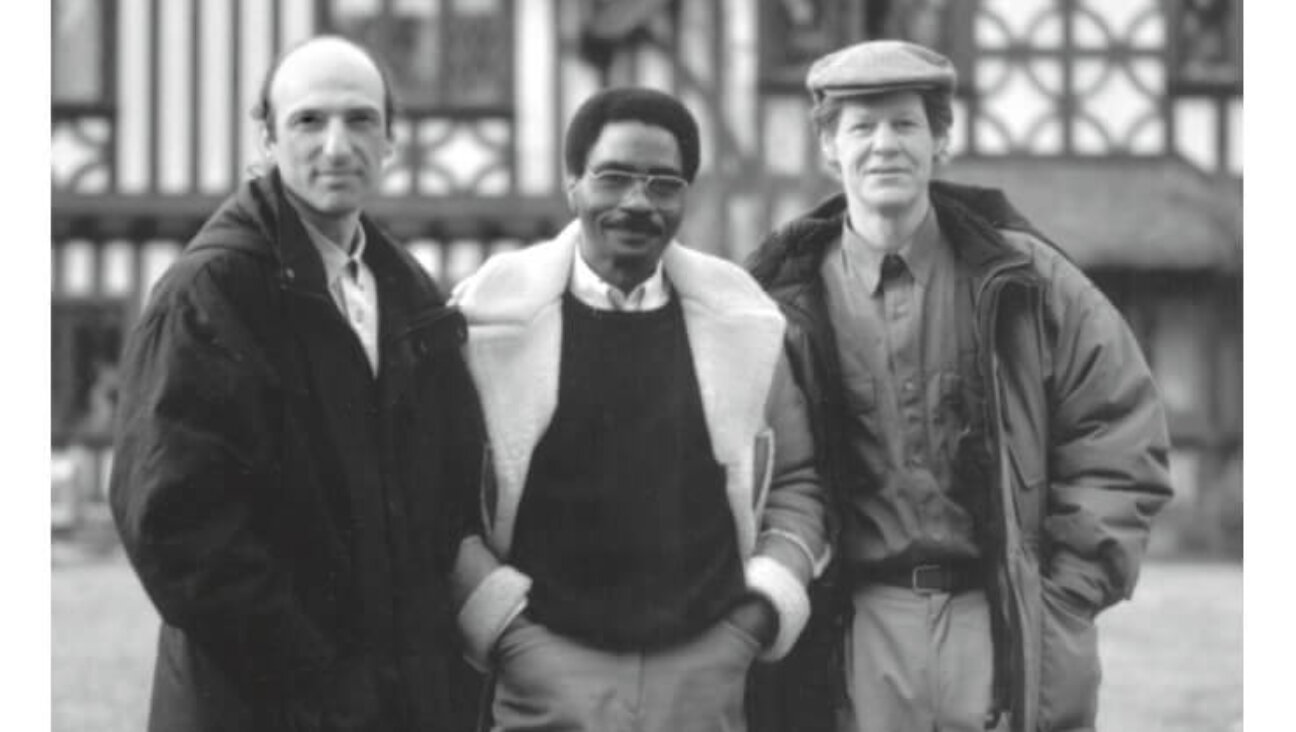Learning From Lebanon, Israel Sets Up Press Operation
Tel Aviv, Israel — Even as their surprise military campaign remained secret, Foreign Ministry officials scurried to put in place another dimension of modern warfare that they considered crucial to their success.
In Sderot, a town pummelled by rockets that Hamas had launched from Gaza, a pressroom was set up to offer Israel’s perspective on the war the officials knew was coming. Coffee and cookies were readied for the hordes of journalists that were expected to arrive with the war. A photographer was poised to shoot images of the damage that was likely to be effected by the rockets that Hamas would fire in retaliation. A rotation of Foreign Ministry representatives and diplomats was drawn up, and within hours of the December 27, 2008, attack itself, military staff arrived at the pressroom with publicity materials to make their case to the world.
These detailed plans were part of the lessons learned as a result of the much-criticized Israeli performance during the country’s 2006 war with Lebanon.
This time, the shaping of the world’s perceptions of the attack would not be left to chance. A technical expert set up a system for getting images to the Foreign Ministry in Jerusalem for distribution. Representatives were given sleeping bags for the short stretches of sleep between shifts. On December 29, the Israel Defense Forces created its own channel on the Web site YouTube, carrying footage of its precision bombings. The footage included captions emphasizing that the main target was Hamas’s weapons and not civilians.
“It’s one of the lessons we learned from the Second Lebanon War — to have everything ready,” deputy Foreign Affairs Ministry spokesman Andy David told the Forward on December 30.
The insistence on learning from mistakes made in the Second Lebanon War, which was led by Israel’s prime minister, Ehud Olmert, extended beyond having a press center ready to roll, and toward the message that was being put forward.
“I’m trying not to limit myself,” David said. “My message is to say that the aim is very simple: that what has happened in the last eight years [rocket fire in southern Israel] will not happen in the future. The aim is to change the reality.”
He said that the purpose of the public diplomacy effort “was not to convince everyone they like us, but that we have the right, the will and capability to do what we think necessary.
“And when I try to set my goal, my role is to give leaders the leeway to act as they believe we should act. I try to minimize external pressures, while internal pressures are somebody else’s job.”
Bar-Ilan University academic Mordechai Kedar, who served for 25 years in IDF military intelligence, specializing in Arab political discourse, and now researches Palestinian use of the media, sees the operation as something akin to a battle on two fronts — one in Gaza, and one in the media. He described it as a “media-accompanied” war and believes that Israel has planned well for it.
Israel’s media effort is part of a closely coordinated public diplomacy plan, evident at the highest levels. In contrast to assurances given during the Lebanon campaign that the operation would be quick, Defense Minister Ehud Barak has been quoted on several occasions as saying that the operation will continue until all its goals are met.
As for what exactly the goals are insofar as what state Hamas should be in at the end of the operation, Barak was noncommittal until the operation was well under way. At first, he stated broad goals that kept the focus firmly on his concern for Israelis, while keeping his cards close to his vest regarding the scale of the planned operation.
“The goals of this operation are to stop Hamas from attacking our citizens and soldiers,” he said in the Knesset on December 29.
It was not until the third day of the air strikes, when targeted bombings appeared to be working as the military hoped, and polls were indicating that eight out of 10 Israelis supported the action, that a more definite aim became discernible. Then, Barak said that Israel is in “an all-out war with Hamas and its proxies.” Deputy Prime Minister Haim Ramon was quoted as saying that the offensive goal “is to topple Hamas.”
Experts see this approach as significant. “The goals were written in a minimal way, not in a dramatic manner,” said former head of the IDF Ground Forces Command Emanuel Sakal, now a senior research associate at Bar-Ilan University’s Begin-Sadat Center for Strategic Studies. He stressed how even after more was revealed about the goals, no promises were made about a timetable. “Nobody declared that there will never be any rockets anymore, and nobody said that in five, six or seven days we will destroy Hamas. They have learned a lot from Lebanon in 2006,” Sakal said.
There is a feeling that the Winograd Commission report, issued in response to the Second Lebanon War, has spurred a culture change among the country’s leaders, which has become evident only now, as Israel launched its first major operation since its release. “People are talking, in a sense, with the next Winograd Commission in mind,” said Yoram Meital, head of the Chaim Herzog Center for Middle East Studies and Diplomacy at Ben Gurion University. “They know that if things go wrong, there will be another investigation and that their statements will be examined.
“One lesson of Winograd was that during Lebanon, officials spoke of a complete knocking down of Hezbollah, which was never realized. Now, officials have been very cautious about the aims of the campaign. They don’t want that the next commission could examine the gap between aims and the end game and point the finger.”
In terms of the military operation itself, there is a widespread belief that it was planned with 2006’s Lebanon War — widely criticized as poorly planned —firmly in mind. The war was “not based on a detailed, comprehensive and authorized military plan, based on careful study of the complex characteristics of the Lebanon arena,” the Winograd Commission claimed. In this latest campaign, said Jonathan Fighel, senior researcher at the International Institute for Counter Terrorism and former governor of Ramallah, Jenin and Tul-Karm, “the reaction [to Hamas rockets] was not spontaneous but well planned; it was not reflexive like in Lebanon, which means a lesson was learned.”
Fighel said that the IDF has made two other major improvements. “The intelligence on the Hamas infrastructure is much better than the intelligence on Hezbollah was,” he said, and this was evident in the targeted nature of the strikes. Second, he said, coordination within the Israeli military has greatly improved.
A message from our CEO & publisher Rachel Fishman Feddersen

I hope you appreciated this article. Before you go, I’d like to ask you to please support the Forward’s award-winning, nonprofit journalism during this critical time.
We’ve set a goal to raise $260,000 by December 31. That’s an ambitious goal, but one that will give us the resources we need to invest in the high quality news, opinion, analysis and cultural coverage that isn’t available anywhere else.
If you feel inspired to make an impact, now is the time to give something back. Join us as a member at your most generous level.
— Rachel Fishman Feddersen, Publisher and CEO






















